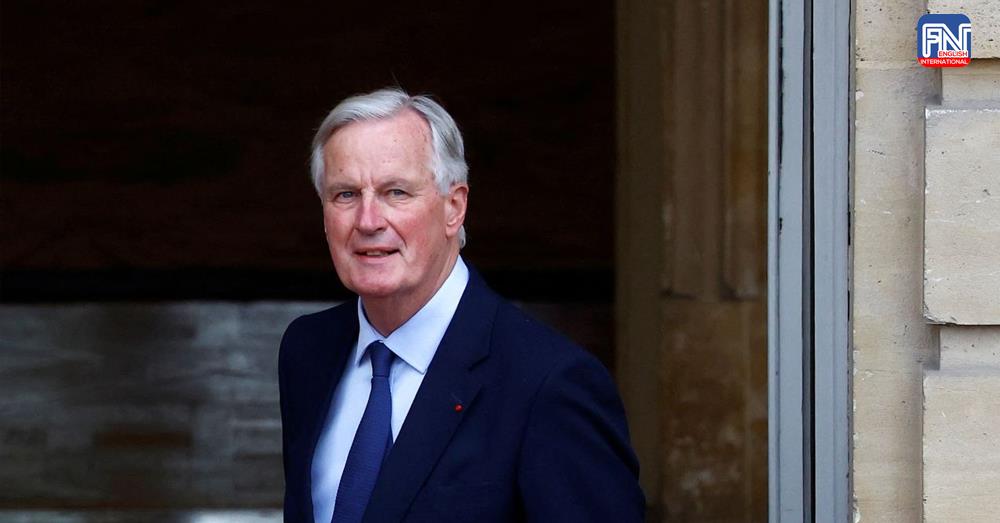PARIS, Sept 5 (Reuters) - After two months of political chaos following snap elections, French President Emmanuel Macron on Thursday named as prime minister Michel Barnier, who pledged to cooperate across the political spectrum but gave few clues on his plans.
The EU's former chief Brexit negotiator - a discreet conservative who is relatively unknown in France despite former ministerial roles - faces the daunting challenge of steering tough legislation like the 2025 budget through a hung parliament while under constant threat of being toppled.
The fates of Barnier - and Macron - rest with Marine Le Pen's far-right National Rally (RN), which gave tentative support to Barnier's nomination. But the party made clear it could withdraw support at any point if its concerns on immigration, security and pocketbook issues are not met.
Speaking in the courtyard of the Matignon prime minister's residence, Barnier said his tenure "will be about addressing, as much as we can, the challenges, the anger, the suffering, the feeling of abandonment, of injustice running through many of our cities, suburbs and rural areas."
At 73, Barnier is the oldest prime minister in France's modern political history, taking over from Gabriel Attal, who was the youngest. It took Macron two months to appoint him, after the election failed to give any group a clear majority.
Barnier said he would listen to all political groups, citing health care, security and jobs as well as reducing the country's excessive debt as priorities.
"The French ... expressed their need for respect, unity and appeasement," Barnier said, standing next to Attal.
The left, which placed first in the election, opens new tab but without an absolute majority, made clear it would fight Barnier in office.
"The election was stolen from the French people," hard-left leader Jean-Luc Melenchon said, calling for street protests on Saturday. Another hard-left lawmaker, Mathilde Panot, called it an "unacceptable democratic coup".
RN lawmaker Laurent Jacobelli said a condition for not voting Barnier down would be that parliament be dissolved as soon as possible - which would be early July next year.
Jordan Bardella, the president of the RN, parliament's biggest single party, demanded the far right's concerns be addressed. "We reserve all political means of action if this is not the case in the coming weeks," Bardella said.
Barnier is a pro-European and a moderate career politician, though he toughened his discourse considerably when he unsuccessfully sought his party's presidential nomination in 2021, saying immigration was out of control.
He became a lawmaker at age 27 and served in several French governments, including as foreign minister and agriculture minister. He has spent most of the past 15 years working at EU headquarters in Brussels, where he led the EU's talks with Britain over its exit from the bloc.
German Chancellor Olaf Scholz said he wished Barnier "strength and much success," while EU Commission chief Ursula von der Leyen said: "I know that Michel Barnier has the interests of Europe and France at heart."
Macron considered a string of potential prime ministers, but none had enough support to run a stable government.
French bank shares edged up on Thursday, government borrowing costs fell slightly and the euro firmed, in a positive reaction from financial markets following the appointment.
Attention will now turn to Barnier's ministerial appointments, which Macron must approve.
Eurasia Group, a political analysis firm, said some ministers from the outgoing government may continue but Finance Minister Bruno Le Maire was unlikely to be among them.
"Barnier's choice for the finance ministry will therefore be crucial to reassure Brussels and financial markets that France can emerge safely from a dangerously intertwined political and fiscal crisis over the next three months," the firm said.

Photo from Reuters